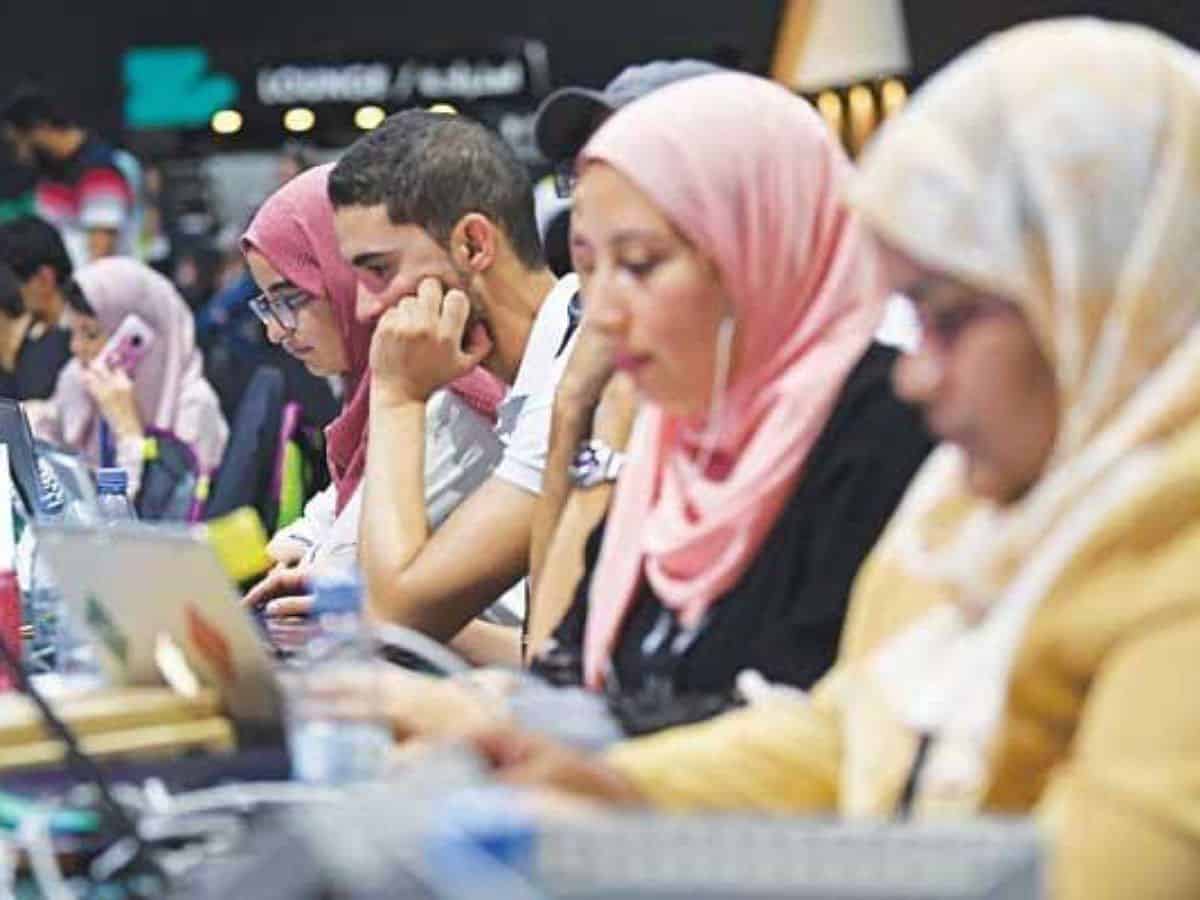
Riyadh: Female graduates in the kingdom of Saudi Arabia have outnumbered Saudi men in the on-the-job training programme (Tamheer) launched by the Human Resources Development Fund— Hadaf.
Hadaf said 74 percent female and 26 percent male of the 61,000 participants benefited from Tamheer, a 3 to 6 month vocational training program for Saudi graduates, since its launch in 2017.
Most of the male and female participants were from the top three regions— Makkah, Riyadh and the Eastern Province.
The number of women working in the Kingdom has nearly doubled in the past five years and is now more than 35 percent of the workforce.
Hadaf offers professional certificates for graduates wishing to train in new areas including cybersecurity, artificial intelligence, technical information security, information and communication technology, and risk management.
- Tamheer provides a monthly financial stipend of SR2,000 ($533) for graduate diploma holders from technical, health, and administrative institutes and colleges, and SR3,000 ($800) for people with a bachelor’s degree and above.
- Tamheer also bears the insurance costs for trainees when they are in the work environment for the practical element of the program.
- The training period ranges from 3 to 6 months.
- Trainees receive an experience certificate upon successful completion of the program.
- To qualify for the program, applicants need to be higher education graduates and have been unemployed for at least six months.
Hadaf offers training opportunities through the Taqat national labour portal.
Saudi Arabia to increase women in workforce ahead of vision 2030
For decades, Saudi Arabia had one of the lowest rates of female labour force participation in the world. The Middle-East region has always lagged behind the rest of the world when it comes to women and the job market.
In recent years, the participation of Saudi women has increased from 20 percent in late 2018 to 33 percent by the end of 2020.
Saudi Arabia’s crown prince Mohammed bin Salman plans to change economic and social rules as part of his vision 2030 plan to diversify the country’s economy.
The country in recent years adopted several reforms to empower women, including ensuring that women can drive cars, enter playgroups and stadiums, and pursue occupations that were previously accessible only to men.
After the transition to allow Saudi women to travel in the kingdom, from 2019 onwards Saudi Arabian women can also travel abroad without permission and may apply for their passports, ID documents, and all official registrations directly without requiring a male guardian (mahram).
In February 2021, Saudi Arabia opened up military posts for women for the first time which allowed them to report through a unified portal.
In a first for Saudi, female officers were allowed to guard Islam’s holiest site and were allowed to acquire a driving license and elected to councils, among others.



